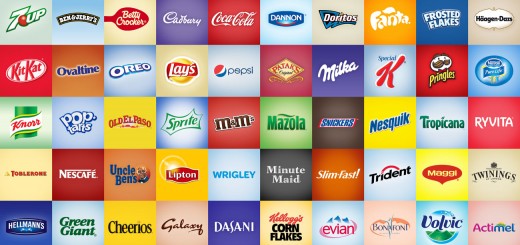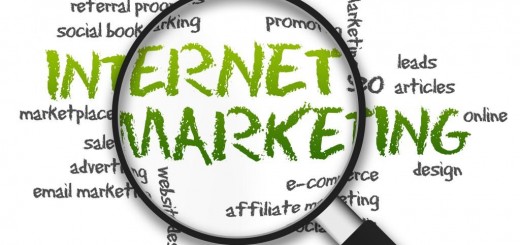Enhanced customer-first approach will drive businesses in 2017
Customer engagement has changed substantially over the past few years. There is an interesting convergence taking place; one that will have massive implications in the way businesses reach out to consumers to offer products and services, influencing the purchasing decisions of consumers. In 2017, customer engagement will become smarter, more personalised and contextual – all thanks to emerging technologies such as data analytics, artificial intelligence and more.
Companies, whether large, medium or small in size, will need to redefine their consumer marketing strategy beyond the realms of just having a loyalty application or a fixed engagement program. With the plethora of communication channels arising in Asia, businesses need to be able to reach their customers in real-time through an omni-channel experience while constantly innovating their customer engagement tactics according to consumers’ behaviour.
In the coming year, customer experience is set to break the boundaries of traditional marketing and move towards building a more personalised customer journey by cohesively leveraging data, service, apps and customer engagement solutions.
Predictive analytics
Predictive and smart data has redefined how we view marketing and customer engagement today. Over the last year, we saw how customer engagement has moved from the typical survey or mass mailing approach to become more personalised with individual interactions taking place with customers. Furthermore, the proliferation of predictive analytics in customer engagement will enable businesses to create richer and more targeted campaigns for their customers.
According to the recent Forbes Insight 2016, only 40 per cent of executives polled believed that their customer data is highly accurate and provided desired insights. While businesses have started to realise the value of data, there is now a need to focus on whether they have the right technological solutions and the resources in place to efficiently capture real-time data and leverage that data effectively.
Businesses will also need to focus on digitalisation in order to break the organisations silos to create a unified data stream, enabling businesses to gain a holistic view of their customers’ journey and behaviour.
Artificial Intelligence
Artificial Intelligence (AI) has been in the market for quite some time, but in 2017, it is expected that a newer, smarter and advanced version of AI technology will lead to the proliferation of cognitive computing and machine learning systems, enabling businesses to employ sophisticated, adaptive and autonomous algorithms that will parse big data creating a hyper-targeted customer experience.
In 2017, more businesses will be investing in AI powered systems as they try to make the most out of their customer data from multiple channels. By leveraging machine learning capabilities of AI to engage consumers more strategically, businesses will be facing some exciting times in the customer experience space as business efficiency will now become more dependent on consumers’ behaviour and patterns than ever before.
Customer experiences will be attained through smarter platforms heavily driven by AI. With the stage being set for an automated era, businesses will need to start rethinking their technology strategies.
The customer will continue to be ‘King’
Customer centricity has been greatly discussed in recent years, but there is still a need for businesses to proactively understand customers’ evolving and growing demands rather than to just react. In 2017, we will see more Asian enterprises being able to anticipate the demands and needs of customers instead of waiting for customers to make a request by implementing cutting-edge marketing technology such as proximity marketing.
More brands will be seen adopting a customer-first approach, focusing on diving deeper to understand the 6 Ws (Who, What, Where, When, Why and How) of their customers which will enable a more meaningful and strategic approach towards understanding their customers’ needs, demands and behaviour. The brand-consumer relationship will become a more trust-based relationship and not just focused on the products and services that the company offers.
With consumers being inundated with countless options, businesses will make smarter use of technology to capture personalised, contextual, and viral moments of activities and transactions from consumers and customise offerings accordingly.
Ultimately, customer satisfaction will be the key factor for defining the success or failure of businesses and it will be the consumers who will define and drive the rules of the brand-consumer engagements.
The changing face of consumer marketing
Over the years, the role of marketing has shifted from traditional revenue generation activities, towards a more strategic tool to engage customers, build a strong pipeline and leverage marketing technology (Martech) to extract relevant data and utilise it so there is a quicker time-to-market to increase revenue. In fact, the new Gartner CMO Spend report, predicts that CMOs will be nearly on par with CIO investments on Martech products in 2017.
Today, consumers especially the millennials, want a closer relationship with their favourite brands. This trend will give rise to purpose-driven marketing as brands will focus on creating more authentic and closer relationships with their consumers.
More businesses will adopt the mobile-first approach, to better connect and engage with their customers via mobile devices. Through features such as gamification, companies will start enhancing customer experiences in a more fun and engaging manner. For instance, companies will start gamifying feedback forms, surveys and various other customer spend activities in order to increase customer engagement and spending. Campaigns will be carried out where better rewards will be offered in return for additional information or customer transactions.
In 2017, we will see an innovation led era where customer communication will not be simply a tool to gain loyalty but will become an effective measure to continuously add on value for customers.
Summary
In order to stay ahead in the competitive landscape, businesses in Asia will adopt a customer-focused, data driven, precision marketing methodology that will lean on smarter Customer Relationship Management (CRM) platforms and in depth insights on the customers’ behaviour. This contextual intelligence will enable businesses to integrate their mobile, social and email strategies into the overall marketing strategy, leading to unified customer experiences.
The post Enhanced customer-first approach will drive businesses in 2017 appeared first on Digital Market Asia.



